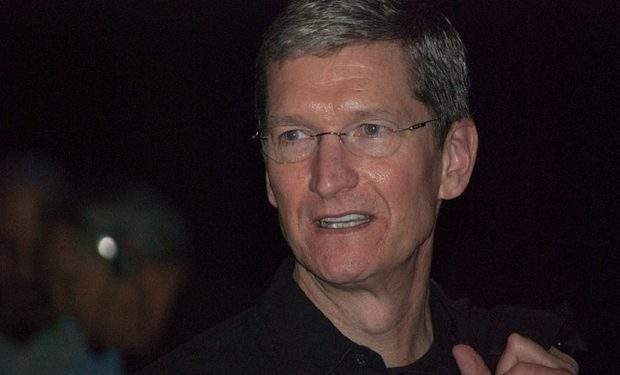Tim Cook more than ably stepped into the shoes of one of the world’s most charismatic and famous business leaders when Apple co-founder Steve Jobs died in 2011. The transition to Cook, which saw Apple rise to become the first trillion dollar company, was smoother than almost anybody outside the company predicted.
With the larger-than-life Jobs virtually synonymous with the Apple brand, many wondered if — in this age of the charismatic celebrity CEO — the company could continue to thrive without the founder’s showmanship. There was a sense that Jobs practically put the iPhones together himself in the (albeit much bigger) garage.
Yet according to a new interview, the transition was shockingly smooth because Cook was already in charge of what made Apple so valuable — the logistical aspects of the company that boosted the efficiency of Apple’s operations to trounce competitors.
Satjiv Chahil, former marketing chief at Apple, recently told Adriana Belmonte at Yahoo Finance that “if it weren’t for Tim Cook, Steve wouldn’t have succeeded, or Jony Ive.” (Ive is the legendary Apple product designer.)
When Cook joined Apple in 1998, everything got much better operationally very fast, according to Chahil, who paints the current Apple CEO as the mastermind behind juggernaut Apple’s corporate rise.
Chahil believed Jobs’s role was chiefly as a communicator — an inspired one, “the best” — and saw him as the “chief imagination officer.” Jobs was not doing logistics, getting product to the stores.
Imagination is ultimately only part of any business. If Jobs provided Apple’s inspiration, Cook provided the perspiration (and spreadsheets) — even if he looked (and still looks) cool doing it.
Chahil says it’s “the operation guys who make everything work,” calling them the “unsung heroes.” Even now, that “unsung” tag perfectly suits Cook, who leaves a smaller cultural footprint than his predecessor even as he runs arguably the most successful company in the world.
When Becoming Steve Jobs by Brent Schlender and Rick Tetzeli was published in 2015 and soared to #1 on the New York Times bestseller list, it was revealed that upon learning Jobs was sick with cancer, Cook offered his boss a part of his liver. (The two men were a blood type match, according to the book’s reporting.)
Jobs declined Cook’s offer, but apparently did forget it. Cook evidently would do the right and generous thing, even at great sacrifice to himself. It is a leader’s job description. That “unsung hero” quote here again rings true.
But “[Jobs] cut me off at the legs, almost before the words were out of my mouth,” Cook said about his liver donation and transplant offer. “No, I’ll never let you do that,” Jobs responded. “I’ll never do that.’”
Cook had objections to other books about Jobs, which in trying to capture a complicated man in full did not skimp on the unflattering aspects of his demanding, hardcore personality.
Cook didn’t care for Walter Isaacson‘s portrayal in 2011’s Steve Jobs, objecting that the irascible persona presented in the book showed “somebody I would never have wanted to work with over all this time.”
Cook, in close proximity to Jobs, saw a better man than the one he met on Isaacson’s pages. There is some evidence for Cook’s take: You don’t — it’s pretty much a rule — offer part of your liver to a jerk.
